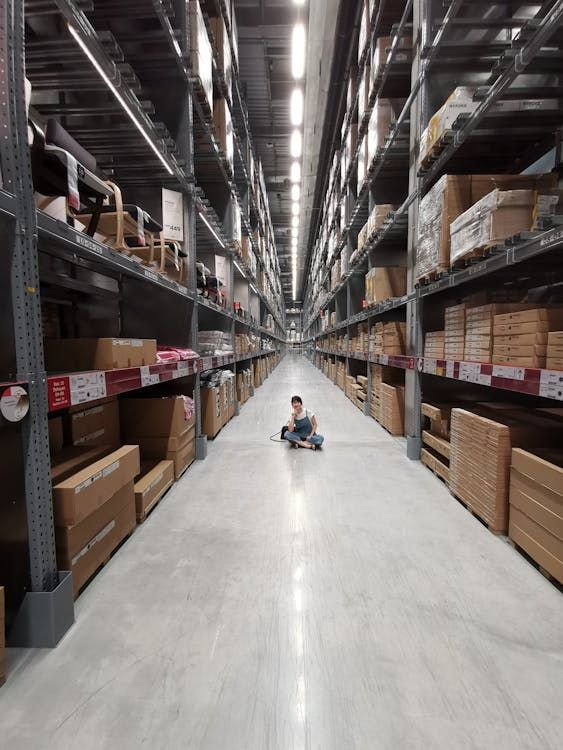Choosing the Right Tech Partner: Questions to Ask Your Software Developer
By Jayden Ireland on 3/5/2025
Sarah, the owner of a growing small business, finally decided to invest in custom software to streamline her operations. She was excited to find a tech partner to bring her ideas to life. After a quick search, she hired a software developer who seemed friendly and knowledgeable, and dove into the project with high hopes.

However, it didn’t take long for things to go sideways. Weeks passed with only sparse updates from the developer. When the first version of the software finally arrived, it was missing crucial features Sarah had assumed would be included. Frustration mounted as deadlines slipped and costs climbed. Sarah realized too late that she hadn’t properly vetted her developer – a mistake that was costing her dearly.
Many small business owners find themselves in the same boat. Eager to get a project started, they rush into hiring a developer without a clear idea of what to ask or expect. The result can be costly: budget overruns, endless delays, or a final product that doesn’t solve the problem. The good news is that a lot of these headaches can be avoided by asking the right questions before you sign on with a software developer.
Key Questions to Ask Your Software Developer
Before handing over your project, make sure to discuss these critical questions with any potential developer or agency. It could save you from unpleasant surprises down the road:

Have you worked on similar projects before?
In Sarah’s case, she discovered too late that her developer had never built an inventory management system for a retail business like hers. Without relevant experience, the developer missed important industry-specific features and had a steep learning curve. The end product didn’t quite fit Sarah’s needs. Asking about similar past projects helps ensure the developer understands your industry and can deliver a solution that truly works for you.

How do you handle communication and updates?
Partway through her project, Sarah’s developer went silent for weeks—emails went unanswered and deadlines slipped by with no updates. She was left completely in the dark about the project’s status. Clear, consistent communication is vital for any successful project. Ask potential developers how often you’ll get updates and who your point of contact will be. If a developer can’t answer this clearly, that’s a red flag. In fact, ineffective communication is the primary contributor to project failure one-third of the time.

What happens if I need changes later?
When the first version of Sarah’s software was delivered, she realized it lacked a key feature she needed. She asked the developer to add it, but was shocked to hear that any change would require a new contract and additional fees. Sarah felt stuck with a product that wasn’t quite right unless she paid more. To avoid this scenario, ask how the developer handles change requests or new ideas after development is underway. A good partner will be flexible or at least upfront about the process and costs for making changes. Make sure you know if updates and tweaks are included or how they’ll be billed so you aren’t blindsided later.

Who owns the code and data?
As the project neared completion, Sarah was alarmed to find out that her developer planned to keep the source code on his own servers. This meant she wouldn’t have full access to the software she paid to have built. It’s a horror-story scenario: if things went wrong, she could even lose access to her own business data and tools. Always ask who will own the code and data once the project is finished. You should have control over the technology that runs your business. A trustworthy developer will ensure you retain ownership of your software (or at least have a license to use it) and will clarify this in the contract.

What’s your process from idea to launch?
In hindsight, Sarah realized her project had lacked any clear roadmap or timeline. Her developer had jumped into coding without setting concrete milestones or deadlines, and the project ended up dragging on much longer than expected as features kept changing on the fly. That’s why it’s crucial to ask about a developer’s process up front. A great development partner will outline each step—from initial planning and design to testing and launch—so you know what’s happening at every stage. A clear process helps prevent delays and scope creep. If a developer can’t explain their process, consider it a warning sign that the project might not be well managed.
What a Great Tech Partner Looks Like
The good news is that not all tech partnerships end in disaster. Great software development partners do exist — the kind that act like an extension of your team and truly care about your success. These reliable partners share a few key traits:
Transparency
They keep you in the loop with regular updates, honest feedback, and clear communication. You never feel like you’re left guessing about the project’s status.
Flexibility
They understand that your needs might evolve and are willing to adapt. Instead of saying “that’s out of scope” at every turn, a great partner finds ways to accommodate reasonable changes or will phase them into future updates.
Clear Contracts
All terms are spelled out plainly, including timelines, deliverables, costs, and especially ownership of code and data. There are no surprise fees or clauses because expectations were set in writing from the start.
Strong Track Record
They can show you examples of similar projects they’ve successfully completed. That experience means fewer rookie mistakes and more insight into what works best for your type of business.
Ongoing Support
A true partner doesn’t disappear after launch. They offer support and maintenance, and they’re there to help you continue improving your software as your business grows.
Conclusion: Why KoffieIO is the Right Choice
In the end, had Sarah asked these questions from the start, she could have saved herself a lot of trouble. Like many business owners, she learned the hard way that vetting a tech partner is just as important as the project itself. The difference between a nightmare project and a smooth success often comes down to finding a developer who checks all these boxes.
At KoffieIO, we pride ourselves on transparency, reliability, and a partnership-first approach. We answer these key questions up front so you can focus on growing your business, not fixing tech headaches. Thinking about a custom solution? Let’s chat and find the right fit for your business.